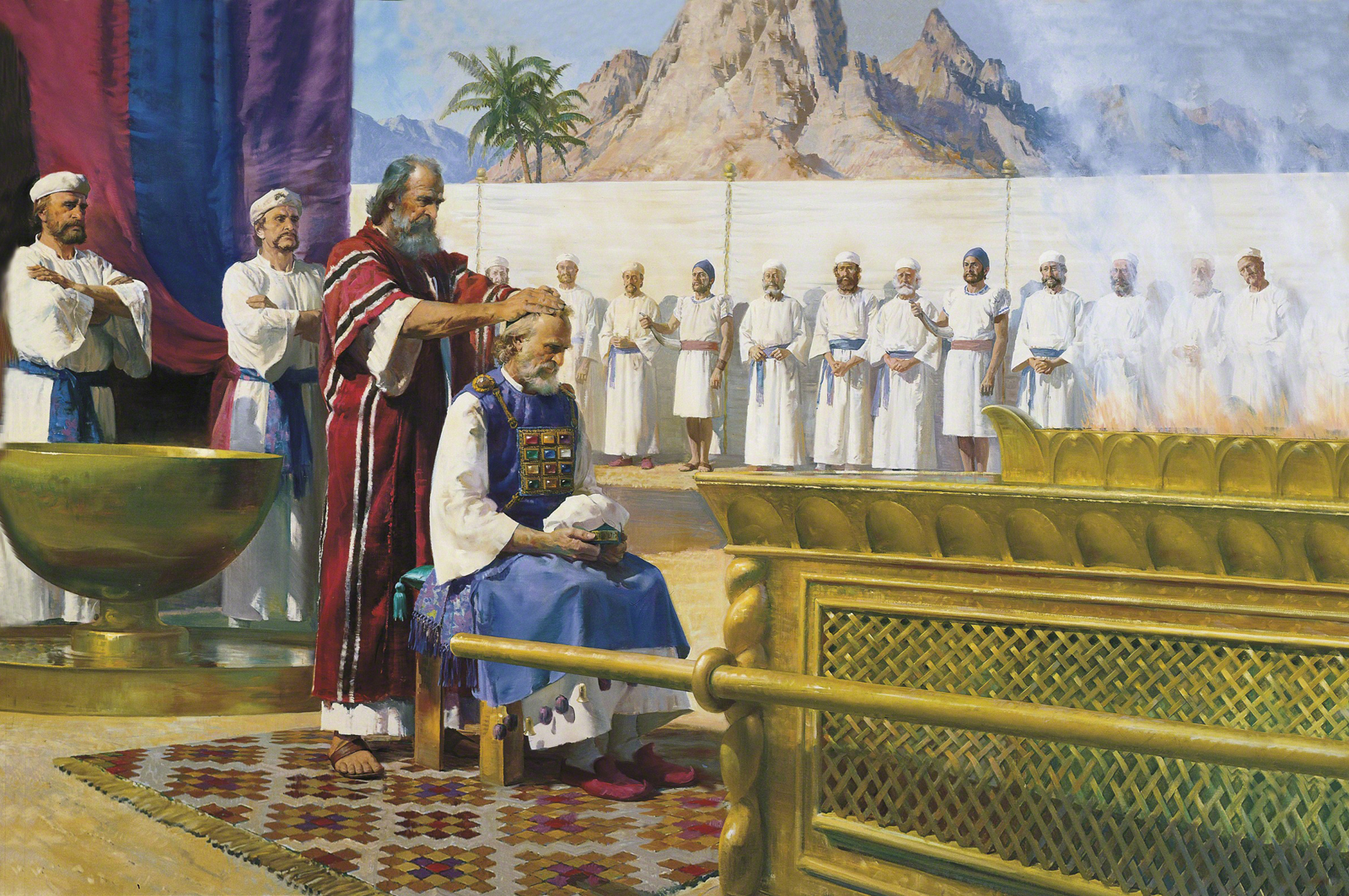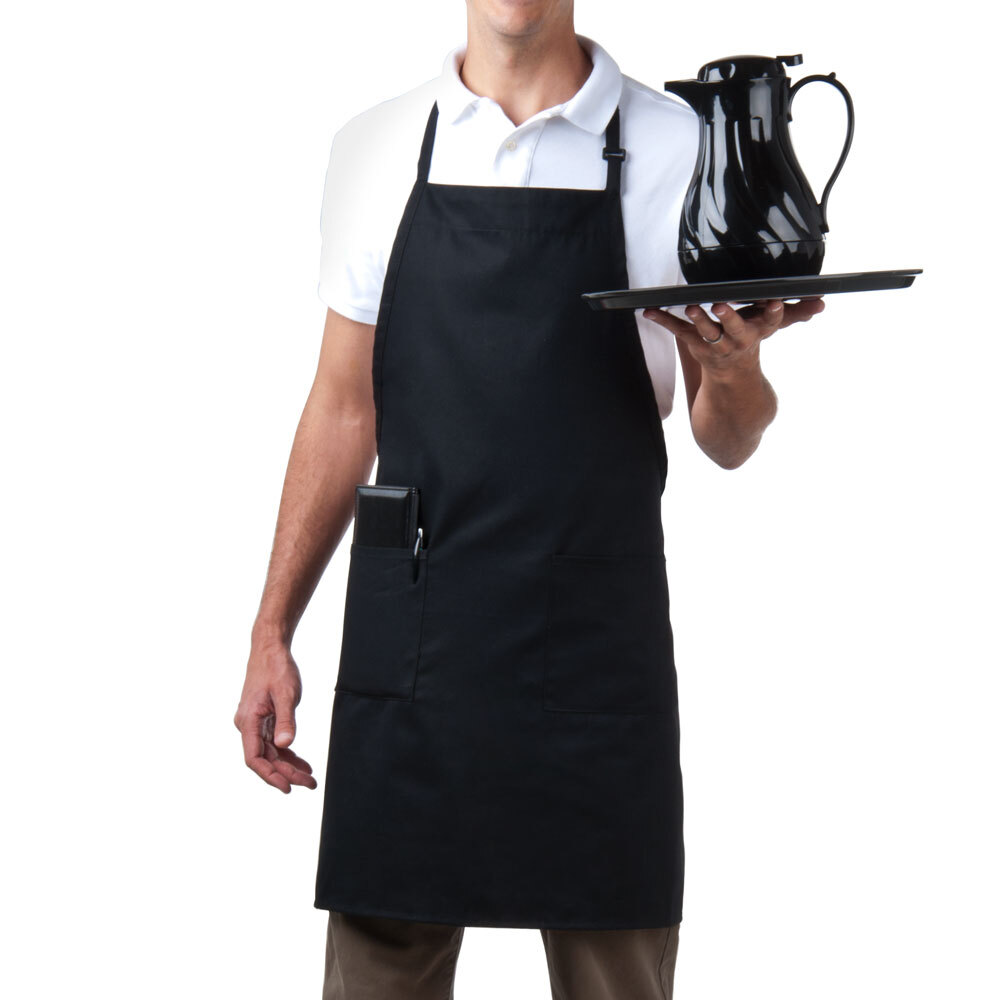 |
| Moses giving Aaron the Aaronic/Levitical priesthood. |
"Unnecessary?" You might protest. "What about equal rights?" You might say.
I'll answer that. Equal rights in the world is a great deal different from equal intrinsic value in the eternities. That is to say, the worldly sense of equal rights demands that everyone gets the same thing. This is basic elementary logic. But what basic elementary logic ignores is the higher, more educated understanding that giving everyone the same thing is not always healthy or beneficial.
Not following? Let me make it more plain.
If I gave everyone a raspberry cream cheese danish (exactly the same size) to everyone - would everyone be healthy and happy?
At first leap, you'd say yes. But I have a sister who is gluten intolerant, a brother allergic to raspberries, and another sister who can't have milk products. Starting with these three people alone, you've got three miserable folk who just can't eat what I gave to them. This does not count the toothless people, or people who have to be tube-fed, or infants who can take one bite, if not able to eat it at all. Or what about people who HATE cream cheese. Or are on the Paleo diet? Vegan? So, it can logically be added up that true fairness is for me to provide alternatives that allow my gluten-free sister, raspberry-free brother, and milk-free sister something just as good. That is to say, true fairness and equality is giving people what they actually need rather than giving the same all around. In fact, just giving people what they want is not the same as giving them what they need.
And believe me, my gluten-free sister would rather not be gluten-free if she didn't need to be.
Ok, so what does this have to do with the priesthood?
Lots.
I think one of the most misunderstood things about the Church of Jesus Christ of Latter-Day Saints is the nature of the priesthood within the church. To make it clear, the priesthood within the LDS church is not like that of other Christian faiths in many respects. First off, we claim the priesthood was passed on to us through lines of proper authority, that it had to be restored - which upsets a lot of people who don't believe this is true at all.
But there are aspects of the priesthood that some members of our faith also don't quite comprehend.
As everyone is in a state of growth, I will list what I discovered. In doing so I hope to clear up a lot of misunderstanding that even members of my faith have.
1. The priesthood in the Church of Jesus Christ of Latter-day Saints is not a paid profession.
It is not a career. In other churches you study to get the priesthood. In other churches, you go to college for the priesthood. It is a life path, and it stands out.
In the LDS church, you do not aspire to a position or calling. Not at all. Ever. You are called of God into positions. There is no seeking. There are no rungs of ladders which you climb. Bishops (another link) and Stake Presidents, and such are called to such positions through much fasting and prayer. And they don't stay in those positions forever. In fact, many of these leaders are often released from their callings and end up serving as Sunday School teachers, or even Nursery Leaders. The same goes for area authorities and Seventies. Apostles are in their position for the long haul - unless they transgress the laws of God and are excommunicated (yes, it can happen). Prophets likewise. Fact is, Christ is the head of the church. Not the prophet.
Fact is, all these leaders hold a different profession to pay for their livelihoods. I had one who was a dentist. Another who owned a plant nursery. And I have an older brother who is currently serving as a bishop, yet pays for his livelihood through teaching elementary school, and writing novels. We feel the gospel ought to be shared without money and without price. As in the New Testament when Simon the magician attempted to buy the priesthood from Peter, the priesthood is not a commodity to be bought or sold.
Some people might argue that general authorities are given a living stipend, and are therefore paid. Here's a site that explains that more clearly. Considering how they are always on the go... not vacationing in the Bahamas like some detractors imagine, or have any leisure time to speak of for that matter, their meek stipend is understandable. And it is a speck in comparison to what Congress gets for making laws that suit only themselves.... or even what the President of the US gets when long out of office and doing nothing.
2. The priesthood in the LDS church is organized the same as in the early/primitive church of Christ's era.
That's right. We have a prophet who heads the church and whom be believe receives revelation from God, the same as Moses, Abraham, Isaiah, and all those wonderful Biblical prophets of ancient times. Under our modern prophet are 12 apostles, who are called to preach the Gospel of Jesus Christ to the nations, and to declare that Jesus Christ truly is the son of the Living God, the Father of Heaven and Earth. And under them are other church positions, such as seventies, evangelists (missionaries in modern lingo), teachers and so forth.
3. The power and authority of the priesthood is not that of a despot, but that of a steward.
In the worldly sense, power is a strength used to compel people to do a thing and to control a thing. But within the LDS church, the power of the priesthood is like that of the power of a steward to a lord, in a rather literal sense.
Today we don't really deal with many stewards in the old fealty sort of sense. But not too long ago (mostly back in Europe as most people in the US just didn't do this sort of thing, as lords and ladies were things of 'ancient history') when lords left their territory, they had servants who oversaw their land and made sure their will was still carried out even after they were gone. The responsibility of a steward was high, and he was probably the most trusted servant to a lord (watch Jane Austen films, and you'll run across mention of stewards). A steward's task is not to do that which he wants to do, but only the will of his lord. Jesus Christ himself told parables about unjust stewards that did not follow the will of their lords.
So, as in the LDS church, the role of the priesthood is not to set laws and such, but to seek the will of the Lord and to do it.
4. The priesthood can be lost if it is used improperly.
There are a lot of really sad stories circulating about priests in churches who have abused children and done other awful things. This, of course, is not what God wants to happen. But as God grants us free will, and that he is not a despot sending out secret police to regulate the actions of his claimed followers, people make bad choices.
That said, within our faith priesthood holders make an oath and a covenant when obtaining the priesthood. In our scripture, Doctrine and Covenants, Section 121, it describes this principle. The rights of the priesthood are inseparably connected with the powers of heaven, and they can be only handled or used righteously. If any priesthood holder ever attempts to use his priesthood unrighteously, as the scripture says "Amen to that priesthood." He loses it.
And when we talk about losing the priesthood, we are not just talking about losing a title... we are talking about losing power from God. This is power to heal. Power to bless lives. Power to do much good. Power to be guided by God.
You also lose authority. Authority to officiate in ordinances, which are sacred formal acts performed by the priesthood.
You also lose the right to enter the Temple.
You see, women can enter the temple without holding the priesthood. But men cannot enter the temple without the priesthood. Not at all, in fact. Men need the priesthood in order to be considered worthy members of the faith.
5. The priesthood isn't about ruling. It is about serving and healing.
There is this phrase that has been going around about the priesthood that I think is incredibly incorrect: Do not confuse the scepter of responsibility with the club of authority. I understand the reason people quote this, but I really think it is a false teaching. The priesthood is not a scepter. It is most definitely not a club. It is an apron.
 |
| aprons are put on to go to work |
"An apron?" you may wonder. "How?"
I'll tell you. And - by the way - this is the key to why it is not necessary for women to hold the priesthood.
 |
| British scepter. |
Symbolically, a scepter is a tool used by a king. But there is only one king within the Church of Jesus Christ of Latter-Day Saints... and that is Christ himself.
A club is a weapon of war. A symbol of abuse, power, and brutality. Definitely not traits of a righteous priesthood holder (as mentioned above).
 |
| war club |
Jesus Christ, when among his 12 apostles in ancient days, talked a great deal about who was the greatest in the kingdom of Heaven. He compared the greatest as a child, but He also tried to show that the greatest was a servant.
Now I really don't think anything Jesus Christ said was throwaway, so He meant something very important by it. At the time He was sharing this message, it was near the time of His death. But throughout his life Jesus emphasized the importance of humility and service. Did He run around bossing and condemning people? Or did He go around teaching, healing, and serving people?
I think we all know the answer to this one.
Now, why in the world is it that women can't wear this apron too?
The answer is simple. We've already got an apron.
"What??? I'm Confused!!!" you might say.
Let me make it clearer... in the world we live in today, the apron women put on to go to work is a different apron to the one men need to wear. Women give service while wearing the apron of... (dun, dun, dun....) MOTHERHOOD.
"What?" they exclaim with insult and exasperation....
And here is the problem. The world we live in today disrespects and treats the apron of Motherhood with so much disdain and disregard that we no longer see Motherhood as an ennobling and important calling. Today, people have framed Motherhood into the mold of slavery, casting on it the colors of unimportance, and smearing it with the mud of disrespect. We live in a world where career has been put onto a pedestal and worshipped. And Motherhood is obviously not a career.
Fact is, being a mother is not only hard, but crucial to the survival of a free and healthy society. The job of fatherhood is also crucial, as its job is to aid Mother, and protect and provide so the mother can perform the most important job of the world - to raise a healthy generation of people so they are capable of leading on the world once the parents are gone.
The world today keeps talking about preserving nature, and saving things so that it can be green. But it keeps killing the one thing that makes civilizations thrive - a healthy family life. Never forget that old adage: "The hand that rocks the cradle is the hand that rules the world." This is a true statement. And people who seek power know this. Oppressing and devaluing mothers, taking children from their true teachers is something that the Nazis and other oppressors have done systematically (Read Animal Farm, and pay attention to what they do with the pups). And it happening today.
Mothers are not 'baby makers' as people like to popularly make out. They are nurturers. And mothers can and do nurture more than just the children they birth themselves.
But this is a topic for the next blog, I think. More detail is necessary.
The fact is, ladies, why is it you want the apron men have? They need it so they can become proper servants of God and to their fellow Man (and I do mean this in the general sense, since we call all cows and geese by the feminine word). It is theirs. Let them have it.
The priesthood's purpose is two-fold... for man to serve God, and for God to help man grow to become more like him. Men in general do better when they have a duty. It is a natural fact. Women, naturally, are enculturated to be more social. Men, not so much. (Random fact, if you study Asperger's syndrome, women who have Asperger's tend to come across as more masculine, as it is a more female nature to be social and connect than it is a male's nature. Male Aspergians really struggle with connectivity).
Let me share one last story...
Years ago when I was at a church conference in Beijing, China, a woman regional authority leader opened our meeting with what I thought was an irrelevant question... "Why is it men have the priesthood and women don't?" I mean, I was there trying to figure out how to run a bilingual Primary (that's a Sunday school for little kids between ages 4 -11). I wasn't at all concerned with a perceived inequality. I mean, I figured if men wanted to drive the car, as long as it took me to where I wanted to go, I didn't care. Besides, it made me feel like a wealthy lady in the back seat, who could say to the chauffer, "Jeeves, turn here. Take me to the Waldorf Astoria, stat."
Anyway, with this question posed, "Why do men have the priesthood and women don't?" she then joked, "I mean, if women ran the church things would be done right the first time, right?"
At the time, all the ladies in the room chuckled. I did also, but I thought that joke was a bit old, and smug. It is kind of rude to assume half the world was inept, after all.
Then she said, "But seriously, the reason men hold the priesthood and women don't can be answered in this one question...."
And we waited for the question, wondering what it was.
She said, "What do women want the most?"
I thought about that, and so did everyone else. And blast it, she looked straight at me and said, "What do you think?"
Well, whenever anyone does that to me, my mind just blanks. I needed more time to think about what she was getting at. What was it that women wanted the most? Security? A purpose to life? A sense of fulfillment? These are the usual kinds of answers to such a question. But I just shrugged and offered: "Things run right?"
She shook her head and looked to the others. "No. The church itself does not exist to run right. The running of the church itself is an exercise for the growth of its members. Ladies, think. What is it that women want most?"
And we all thought in silence. I'm sure someone had thought of the right answer, but was too shy to speak up. So, finally, the speaker said - and this was profound - "What women want the most... is righteous men."
Now, I don't know if everyone in the world agrees with that. In fact, I doubt they do. Not everyone in the world agrees on every truth in the world. There are plenty of fools out there that think it is ok to binge drink and sleep around... But that belief doesn't make it right.
"A public opinion poll is no substitute for thought" and might I add, truth does not come from a popularity poll either.
Truth is, a righteous woman would want all men to be righteous. Because righteous women would be seeking the benefit of humankind. Period. And wicked men just don't produce that.
The hard part for women (and I think this is the life test of ALL women) is the ability to step back and let someone else take the lead. Humility - a trait Jesus Christ valued highly - is what's critical.
Also, I think the one lesson of life "You can't have everything." should be shifted to: "Maybe you shouldn't have everything." It is kind of greedy to want everything.
Out of the mouth of an apostle (who recently passed away), I think he explains the priesthood clearly.
What is the priesthood all about?
"To bring to pass the immortality and eternal life of Man."
Personally, I think women have enough on our plates. A relieving help from the men, acting righteously, is welcome.









.jpg?MOD=AJPERES&CACHEID=a80b1380480b3632823ec278423ca9af)
